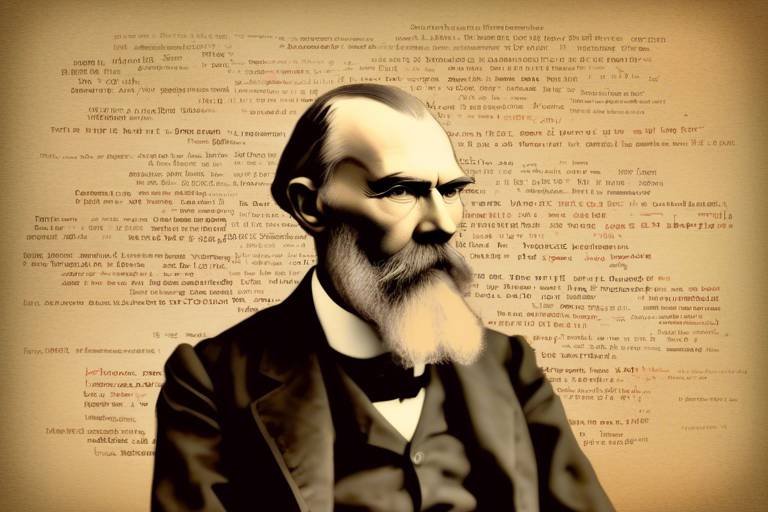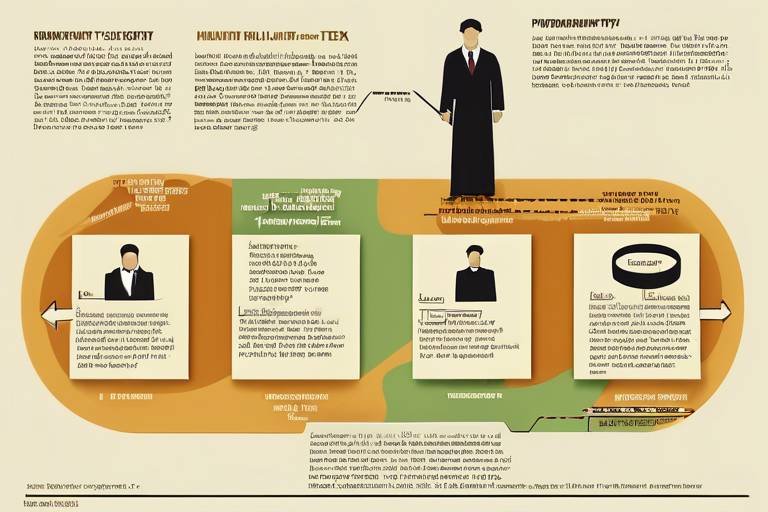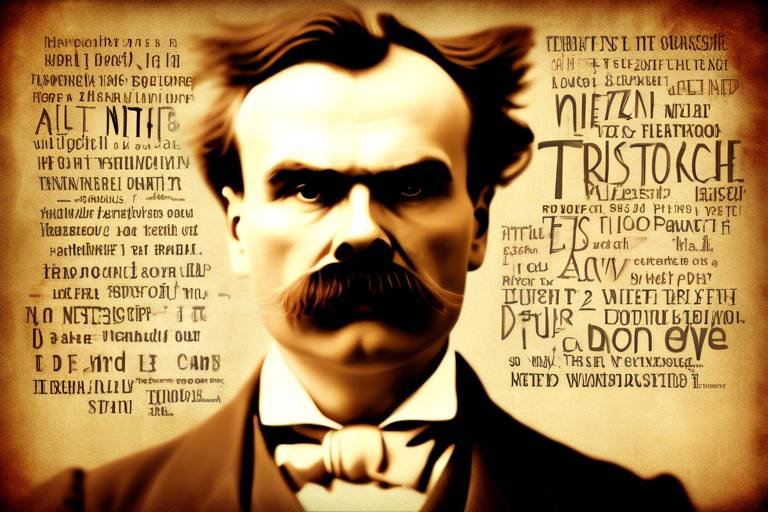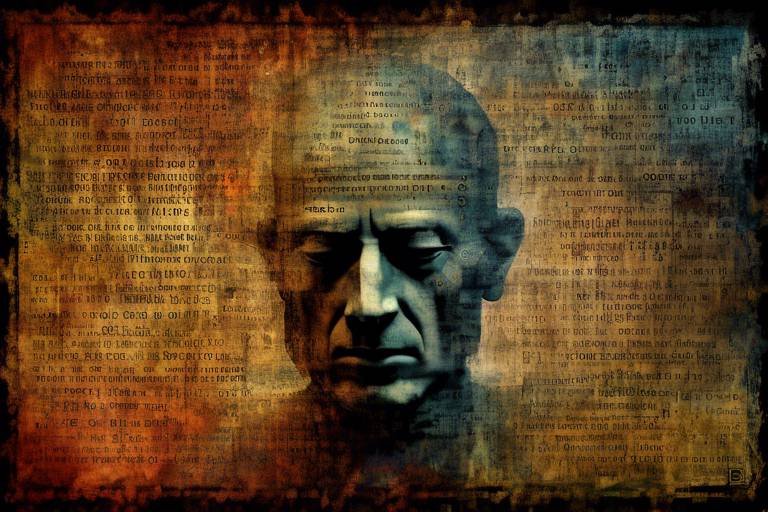How Machiavellian Philosophy Influences Political Realism?
The intricate relationship between Machiavellian philosophy and political realism is not just a theoretical exercise; it's a lens through which we can understand the dynamics of power and governance today. Imagine navigating a complex maze where every turn could lead to either a triumph or a downfall. This is the essence of Machiavelli's teachings, which are rooted in the belief that politics is a battlefield where the stakes are high, and the rules can be bent to achieve success. In an age where political landscapes are shifting rapidly, Machiavelli's insights remain strikingly relevant, encouraging leaders to adopt a pragmatic approach to governance that often prioritizes results over ideals. But how exactly do these age-old principles translate into contemporary political strategies?
To grasp the influence of Machiavellian philosophy on political realism, we must first delve into the foundational principles laid out in Machiavelli's seminal work, The Prince. Here, he articulates a pragmatic approach to leadership, advocating for the use of cunning and strategic maneuvering to maintain power. Machiavelli famously stated, “The ends justify the means,” which encapsulates his belief that leaders must be willing to engage in morally ambiguous actions if it serves the greater goal of political stability and success. This perspective challenges traditional notions of ethics in governance, urging leaders to focus on the practicalities of ruling rather than being constrained by moral considerations.
At its core, political realism posits that politics is inherently competitive and conflictual, driven by the self-interested nature of humans. This concept aligns seamlessly with Machiavellian ideas, as both frameworks acknowledge that power dynamics are complex and often ruthless. Political realists argue that understanding these dynamics is crucial for effective governance. They emphasize the importance of recognizing the limitations of human altruism and the inevitability of conflict in political relations. By adopting a realistic view of human nature, leaders can better navigate the treacherous waters of political life.
Machiavelli's perspective on human nature is central to his philosophy. He believed that humans are fundamentally self-interested, driven by desires for power, security, and recognition. This view informs the tenets of political realism, which interprets political actions as motivated primarily by personal gain rather than noble intentions. By understanding this intrinsic self-interest, leaders can anticipate behaviors and reactions from both allies and adversaries, allowing them to strategize effectively. In a world where trust is scarce, recognizing the self-serving tendencies of others can be a powerful tool in a leader's arsenal.
The relationship between ethics and politics is often fraught with tension in Machiavellian thought. While traditional moral frameworks advocate for righteousness and virtue, Machiavelli suggests that these ideals may need to take a backseat to pragmatic outcomes. This raises provocative questions: Should leaders prioritize ethical considerations, or is it more important to achieve results, even if they come at a moral cost? This debate is at the heart of political realism, where the effectiveness of governance often trumps ethical dilemmas. As leaders navigate this complex landscape, they must grapple with the consequences of their choices.
Embracing a pragmatic approach, as advocated by Machiavelli, can lead to morally questionable actions in the political arena. For instance, leaders may resort to manipulation, deceit, or coercion to achieve their goals. While these tactics may yield short-term gains, they can also foster distrust and resentment among constituents. This paradox highlights a critical debate within political realism: does the pursuit of power justify the means used to attain it? The consequences of such pragmatism can have far-reaching implications for ethical governance and the public's perception of political authority.
In today's political landscape, many leaders draw on Machiavellian strategies, often without even realizing it. From election campaigns that employ targeted messaging to international relations that leverage strategic alliances, the principles of Machiavelli are alive and well. For example, consider the use of disinformation in politics—while it may be ethically dubious, it can effectively sway public opinion and secure power. By analyzing contemporary case studies, we can see how these age-old principles continue to shape governance and political strategy.
The delicate balance between power and morality is a central theme in both Machiavellian philosophy and political realism. As leaders navigate the complexities of governance, they often find themselves at a crossroads: should they adhere to ethical standards, or should they prioritize the acquisition and maintenance of power? This tension raises important questions about the nature of leadership and the responsibilities that come with it. Are Machiavellian tactics inherently detrimental to ethical governance, or can they serve practical purposes in a world fraught with challenges?
To better understand the application of Machiavellian philosophy in political decision-making, we can examine various case studies throughout history. From the cunning strategies of political leaders during wartime to the calculated maneuvers in diplomatic negotiations, these examples reveal patterns of behavior that echo Machiavellian principles. Notably, leaders who have successfully employed these tactics often achieve their goals, but at what cost? Analyzing these case studies allows us to draw connections between theory and practice, highlighting the enduring relevance of Machiavelli's insights.
Despite its practical applications, Machiavellianism is not without its critics. Many argue that such an approach can lead to authoritarianism and moral decay, eroding the foundations of democratic governance. Critics contend that prioritizing power over ethics can create a toxic political culture where manipulation and deceit become the norm. This section presents various perspectives that challenge the efficacy and ethics of Machiavellian strategies, urging us to consider the long-term implications of such an approach on society and governance.
- What is Machiavellian philosophy? Machiavellian philosophy refers to the political ideas of Niccolò Machiavelli, particularly those articulated in his work, The Prince, emphasizing pragmatic and sometimes ruthless strategies for maintaining power.
- How does political realism relate to Machiavelli's ideas? Political realism shares Machiavelli's view of politics as a competitive arena, focusing on the self-interested nature of humans and the necessity of pragmatic strategies in governance.
- Can Machiavellian tactics be ethically justified? This is a contentious issue; while some argue that the ends justify the means, others contend that prioritizing results over ethics can lead to moral decay and undermine democratic values.

The Foundations of Machiavellian Thought
Machiavelli's principles, particularly from The Prince, serve as a cornerstone for understanding the intricate dynamics of political power. His work is not merely a guide for aspiring rulers; it is a profound exploration of the realities of governance. At its core, Machiavellian thought emphasizes a pragmatic approach to leadership, where the ends often justify the means. This notion can be both liberating and unsettling, as it invites leaders to adopt strategies that may seem ruthless yet are deemed necessary for maintaining power.
One of the most striking aspects of Machiavelli's philosophy is his candid acknowledgment of the darker sides of human nature. He posits that individuals are primarily driven by self-interest, a perspective that starkly contrasts with the idealistic views of politics prevalent in his time. Machiavelli argues that a successful leader must recognize this inherent selfishness and navigate it skillfully. This leads to a leadership style that prioritizes cunning, manipulation, and strategic foresight over traditional moral considerations.
To better understand Machiavelli's foundations, let’s highlight some key principles that encapsulate his philosophy:
- Realism over Idealism: Machiavelli urges leaders to focus on the world as it is, rather than how it should be. This realism is pivotal in shaping political strategies.
- Power as a Central Theme: The acquisition and maintenance of power are paramount in Machiavelli's thought. He believes that political stability hinges on a ruler's ability to wield power effectively.
- The Role of Fortune: While Machiavelli acknowledges the role of luck in political success, he emphasizes that skill and preparation can significantly influence outcomes.
Furthermore, Machiavelli’s insights extend beyond mere political tactics; they delve into the psychological aspects of leadership. He suggests that a leader must be both a lion and a fox—strong and fearsome like a lion, yet cunning and shrewd like a fox. This duality allows leaders to navigate the treacherous waters of politics with agility and effectiveness.
In essence, the foundations of Machiavellian thought provide a lens through which we can examine not only historical political maneuvers but also contemporary governance. By understanding these principles, we gain insight into the complexities of power dynamics and the often uncomfortable reality of political leadership.

The Prince,
This article explores the intricate relationship between Machiavellian philosophy and political realism, examining how Machiavelli's ideas shape contemporary political thought and strategies in governance and power dynamics.
Machiavelli's principles, particularly from The Prince, provide a foundation for understanding political power. His pragmatic approach emphasizes the necessity of cunning and strategy in leadership.
Political realism focuses on the competitive and conflictual nature of politics. This section outlines its key tenets and how they align with Machiavellian concepts of power and human nature.
Machiavelli's belief in the self-interested nature of humans is central to his philosophy. This perspective influences how political realism interprets motivations behind political actions and decisions.
This section discusses the often contentious relationship between ethics and politics in Machiavellian thought, highlighting the idea that moral considerations may be secondary to pragmatic outcomes.
Examining the implications of Machiavellian pragmatism reveals how it can justify morally questionable actions in political contexts, leading to debates on ethical governance.
Contemporary political leaders often draw on Machiavellian strategies. This section analyzes real-world examples where these principles have been effectively employed in modern governance.
This section explores the delicate balance between power and morality in political realism, questioning whether Machiavellian tactics undermine ethical governance or serve practical purposes.
Analyzing historical and modern case studies demonstrates the application of Machiavellian philosophy in political decision-making, revealing patterns of behavior in leaders and states.
Critics argue that Machiavellianism can lead to authoritarianism and moral decay. This section presents various perspectives that challenge the efficacy and ethics of Machiavellian strategies in politics.
The Prince is not just a book; it’s a manual for political leaders, a guide that strips away the romantic notions of governance and lays bare the harsh realities of power. Written in the early 16th century, Machiavelli's work provides a pragmatic approach to ruling, emphasizing that the ends often justify the means. Imagine a chess game where every move is calculated, and the players are willing to sacrifice pieces for the sake of winning. This metaphor encapsulates Machiavelli’s philosophy, where the ruler must be shrewd, strategic, and sometimes ruthless.
In The Prince, Machiavelli outlines various types of principalities and the methods by which they can be acquired and maintained. He emphasizes the importance of adaptability, arguing that a successful leader must be both a lion and a fox—strong enough to fend off wolves and clever enough to navigate the complexities of human nature. This duality is crucial; it speaks to the need for leaders to be versatile in their approach, adjusting their strategies according to the political landscape.
Moreover, Machiavelli famously states that it is better for a prince to be feared than loved, if he cannot be both. This controversial assertion challenges conventional morality and raises questions about the nature of power. However, it also reflects a deep understanding of human psychology, suggesting that fear can be a more reliable means of maintaining control than love, which is often fickle and unreliable.
To further illustrate Machiavelli's insights, let's take a look at some key concepts from The Prince:
| Concept | Description |
|---|---|
| Virtù | The ability of a ruler to shape his own destiny and influence the world around him. |
| Fortuna | The concept of luck or fortune that affects human affairs; a ruler must navigate and manipulate fortune to succeed. |
| Realpolitik | A pragmatic approach to politics focused on practical objectives rather than moral or ideological considerations. |
Ultimately, The Prince serves as a reminder that politics is often a messy affair, filled with compromises and ethical dilemmas. It challenges us to reconsider our views on leadership and governance, prompting questions about the moral implications of political actions. Can a ruler truly act in the best interest of the people while engaging in Machiavellian tactics? This ongoing debate remains relevant in today’s political climate.
- What is the main idea of Machiavelli's The Prince?
The main idea is that effective leadership often requires pragmatic and sometimes ruthless decisions to maintain power and stability. - How does Machiavelli view human nature?
Machiavelli believes that humans are inherently self-interested, which influences his political theories. - Can Machiavellian principles be applied today?
Yes, many contemporary political leaders employ Machiavellian strategies in their governance and decision-making processes.

provide a foundation for understanding political power. His pragmatic approach emphasizes the necessity of cunning and strategy in leadership.
This article explores the intricate relationship between Machiavellian philosophy and political realism, examining how Machiavelli's ideas shape contemporary political thought and strategies in governance and power dynamics.
Machiavelli's principles, particularly from The Prince, provide a foundation for understanding political power. His pragmatic approach emphasizes the necessity of cunning and strategy in leadership. In a world where political landscapes shift like quicksand, Machiavelli's insights offer a compass for navigating the tumultuous waters of power dynamics. He famously articulates that the ends often justify the means, a notion that has sparked both admiration and outrage. This principle suggests that leaders must sometimes engage in morally ambiguous actions if they lead to a greater good, a perspective that remains relevant in today's political discourse.
Machiavelli's work is not just a manual for tyrants; it serves as a profound analysis of the realities of governance. He understood that power is not merely about holding a position but about the ability to influence, manipulate, and control. This understanding is crucial for any leader aspiring to maintain authority in a competitive environment. By advocating for a realistic approach to politics, Machiavelli encourages leaders to be adaptable, strategic, and, at times, ruthless. In essence, he challenges the idealistic views of governance that often overlook the darker aspects of human nature.
Political realism focuses on the competitive and conflictual nature of politics. This section outlines its key tenets and how they align with Machiavellian concepts of power and human nature.
Machiavelli's belief in the self-interested nature of humans is central to his philosophy. This perspective influences how political realism interprets motivations behind political actions and decisions.
This section discusses the often contentious relationship between ethics and politics in Machiavellian thought, highlighting the idea that moral considerations may be secondary to pragmatic outcomes.
Examining the implications of Machiavellian pragmatism reveals how it can justify morally questionable actions in political contexts, leading to debates on ethical governance.
Contemporary political leaders often draw on Machiavellian strategies. This section analyzes real-world examples where these principles have been effectively employed in modern governance.
This section explores the delicate balance between power and morality in political realism, questioning whether Machiavellian tactics undermine ethical governance or serve practical purposes.
Analyzing historical and modern case studies demonstrates the application of Machiavellian philosophy in political decision-making, revealing patterns of behavior in leaders and states.
Critics argue that Machiavellianism can lead to authoritarianism and moral decay. This section presents various perspectives that challenge the efficacy and ethics of Machiavellian strategies in politics.
- What is Machiavellian philosophy? Machiavellian philosophy refers to the political theories of Niccolò Machiavelli, emphasizing pragmatic and sometimes ruthless approaches to power and governance.
- How does Machiavelli's work relate to modern politics? Machiavelli's insights into human nature and political power continue to influence contemporary political strategies, often seen in the actions of leaders worldwide.
- Is Machiavellianism ethical? The ethics of Machiavellianism are debated, with some arguing that its pragmatic approach can justify unethical actions for the sake of political stability.
- Can Machiavellian principles be applied in everyday life? Yes, many people apply Machiavellian principles in various aspects of life, such as business and personal relationships, where strategy and influence are key.
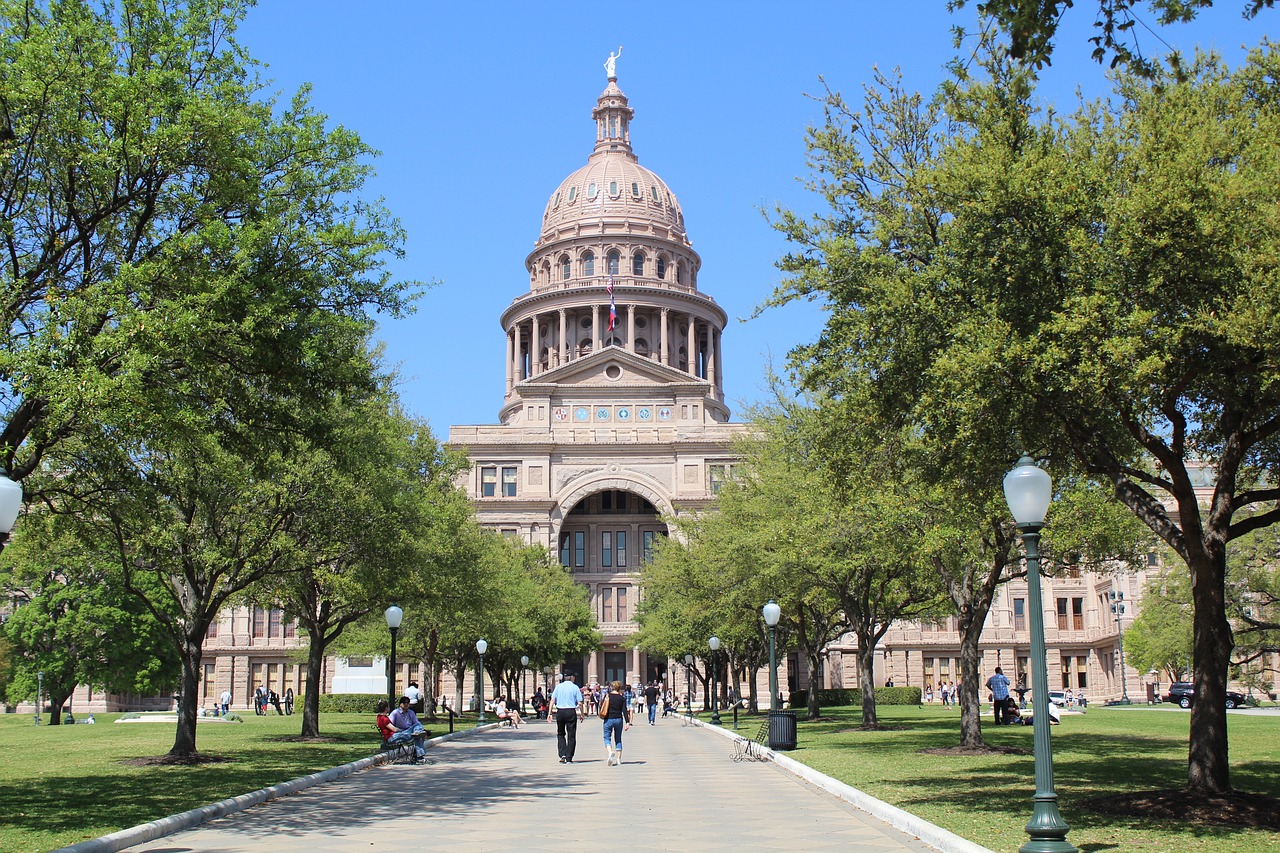
Political Realism Defined
Political realism is a framework that offers a stark, often unromantic view of the political landscape. At its core, it emphasizes the notion that politics is inherently competitive and conflictual. Unlike idealistic perspectives that envision a world governed by moral principles and cooperation, political realism acknowledges the harsh realities of power dynamics. It operates on the premise that individuals and states act primarily out of self-interest, which can lead to a relentless pursuit of power.
This philosophy challenges us to look beyond the surface of political interactions. For instance, while some may view a political alliance as a partnership for mutual benefit, a realist would argue it’s often a strategic maneuver aimed at consolidating power or outmaneuvering opponents. In this light, political realism can be seen as a lens through which we can better understand the motivations behind actions taken by political leaders and nations alike.
One of the key tenets of political realism is its skepticism towards the role of ethics in politics. Realists argue that moral considerations often take a backseat to pragmatic outcomes. This perspective aligns closely with Machiavelli’s assertion that the ends often justify the means. The implications of this viewpoint are significant, as they suggest that leaders might engage in morally questionable actions if they believe it will enhance their power or security.
Moreover, political realism posits that international relations are characterized by anarchy. Unlike domestic politics, where laws and governance structures provide some level of order, the international arena lacks a central authority. This absence of overarching governance leads states to rely on their own means for survival, often resulting in a dog-eat-dog environment. In this competitive landscape, alliances can be fleeting, and trust is a rare commodity.
To better illustrate the principles of political realism, consider the following characteristics:
- Self-Interest: Political actors prioritize their own interests over collective goals.
- Power Dynamics: Relationships are often defined by power struggles, where dominance is the ultimate objective.
- Pragmatism: Decisions are made based on practical outcomes rather than moral considerations.
- Anarchy: The international system is decentralized, leading to a competitive environment.
In summary, political realism serves as a crucial framework for understanding the complexities of political behavior. It strips away the idealism that often clouds our judgment, allowing us to see the underlying motivations that drive political actions. By recognizing the competitive and often ruthless nature of politics, we gain insights into how power is wielded and maintained in both domestic and international arenas.
- What is the main idea behind political realism?
Political realism focuses on the competitive and conflictual nature of politics, emphasizing self-interest and power dynamics over moral considerations. - How does political realism relate to Machiavellian philosophy?
Both political realism and Machiavellian philosophy highlight the importance of pragmatic decision-making and the often harsh realities of power in governance. - Can political realism justify unethical actions?
Yes, political realism often suggests that the ends can justify the means, leading to morally questionable decisions in pursuit of power.
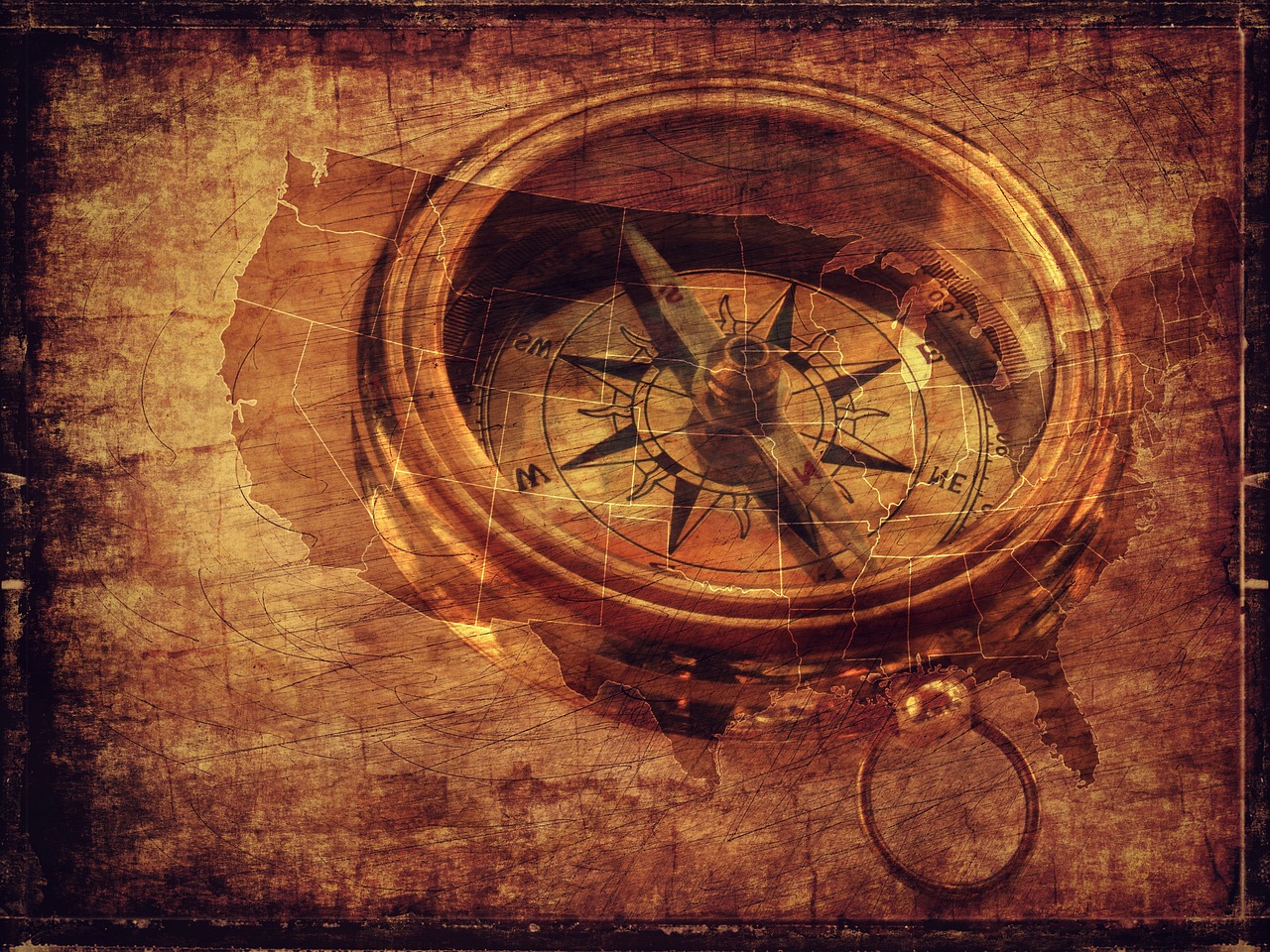
Machiavelli's View on Human Nature
Machiavelli's perspective on human nature is a cornerstone of his political philosophy, and it is both intriguing and somewhat unsettling. He posits that humans are fundamentally self-interested beings, driven by their desires, fears, and ambitions. This view is not merely a cynical take on humanity; rather, it serves as a pragmatic lens through which he analyzes political behavior. According to Machiavelli, understanding this inherent self-interest is crucial for any leader who wishes to navigate the treacherous waters of governance.
In his seminal work, The Prince, Machiavelli famously asserts that it is better for a ruler to be feared than loved, if he cannot be both. This statement encapsulates his belief that people are more likely to act in their own interests than in the interest of others. He argues that while love is a fragile bond that can easily be broken, fear is a powerful motivator that can ensure loyalty and obedience. This leads to a rather stark conclusion: a ruler must be willing to employ cunning, manipulation, and, if necessary, cruelty to maintain power.
Furthermore, Machiavelli's insights into human nature extend to how leaders should perceive their subjects. He suggests that leaders must often anticipate betrayal and be prepared to counteract it. This creates a political landscape where trust is scarce, and individuals are often viewed as potential threats rather than allies. For Machiavelli, the road to effective governance is paved with a keen understanding of the darker sides of human nature, which allows leaders to craft strategies that align with these tendencies.
To illustrate this, consider the following key aspects of Machiavelli's view on human nature:
- Self-Interest: Individuals prioritize their own needs and desires over those of others.
- Fear vs. Love: Fear is a more reliable tool for maintaining control than affection.
- Betrayal: Leaders should expect treachery and prepare accordingly.
Ultimately, Machiavelli's views on human nature challenge us to reconsider the foundations of political ethics. They compel us to ask: Is it possible to govern effectively while adhering to moral principles, or must one embrace a more Machiavellian approach to survive in the ruthless arena of politics? This question remains relevant today, as leaders continue to grapple with the balance between ethical governance and the harsh realities of political power.
- What is Machiavelli's main argument about human nature?
Machiavelli argues that humans are primarily self-interested and that this self-interest drives their actions in the political sphere. - How does Machiavelli's view on fear influence leadership?
He suggests that fear is a more effective means of maintaining control than love, as it can ensure loyalty and obedience from subjects. - Are Machiavelli's ideas still relevant today?
Yes, many contemporary leaders and political theorists continue to draw on Machiavellian principles when analyzing power dynamics and governance strategies.

The Role of Ethics in Politics
When we dive into the murky waters of politics, one of the most contentious issues that arise is the relationship between ethics and governance. Machiavelli, in his seminal work, The Prince, presents a rather pragmatic view that often places ethical considerations on the back burner. He famously stated that the ends justify the means, suggesting that a ruler's primary focus should be on maintaining power and stability, even if it requires morally questionable actions. This perspective raises a critical question: Can effective governance exist without ethical foundations?
In the world of political realism, ethics can sometimes feel like a luxury rather than a necessity. The reality is that leaders often face situations where they must choose between doing what is right and doing what is necessary. This dilemma creates a complex landscape where the lines between right and wrong blur, leading to a debate that has persisted for centuries. Many argue that ethical governance is essential for fostering trust and legitimacy, while others contend that in the high-stakes game of politics, pragmatic decisions often take precedence.
Let's break this down further. The role of ethics in politics can be viewed through several lenses:
- Pragmatism vs. Idealism: While idealists advocate for ethical principles as the cornerstone of political action, pragmatists like Machiavelli argue that success often requires bending these principles.
- Public Perception: Politicians are acutely aware that their actions are scrutinized by the public. A lack of ethical standards can lead to public outrage and loss of support.
- Long-term vs. Short-term Outcomes: Ethical decisions may not yield immediate benefits, but they can foster long-term stability and trust in governance.
Moreover, the implications of ethical considerations in political decisions can manifest in various ways. For instance, a leader who prioritizes ethical governance may implement policies that promote social justice and equality, even if they face backlash from powerful interest groups. On the other hand, a Machiavellian leader might resort to manipulation and deceit to achieve quick results, potentially leading to a fragile and unstable political environment.
Ultimately, the role of ethics in politics is a double-edged sword. While Machiavelli's insights remind us of the harsh realities of power, they also challenge us to consider the long-term consequences of our actions. A government that operates solely on pragmatic grounds may achieve short-term success, yet risk losing its moral compass, leading to a cycle of distrust and disillusionment among the populace.
As we navigate this intricate relationship, it's crucial to remember that ethical governance isn't just about adhering to a set of rules; it's about fostering a political culture that values transparency, accountability, and respect for human dignity. In the end, the challenge lies in finding a balance between the ruthless tactics of Machiavellian philosophy and the ethical imperatives that underpin a just society.
- What is Machiavellian philosophy? Machiavellian philosophy refers to the political theories of Niccolò Machiavelli, particularly his advocacy for pragmatic and sometimes ruthless approaches to governance.
- How does ethics play a role in political decision-making? Ethics influences political decision-making by guiding leaders on what is considered right or wrong, affecting their legitimacy and public trust.
- Can a leader be both pragmatic and ethical? Yes, a leader can strive to be pragmatic while also adhering to ethical standards, though it often requires careful balancing of competing interests.

Consequences of Pragmatism
The concept of pragmatism in politics, particularly as articulated by Machiavelli, offers a fascinating yet troubling lens through which we can examine the actions of leaders and the decisions they make. At its core, pragmatism prioritizes effectiveness over ideals, leading to a political landscape where the ends often justify the means. This approach can yield significant benefits, such as decisive leadership and the ability to navigate complex political waters. However, it also raises profound ethical questions that cannot be ignored.
One of the most striking consequences of this pragmatic approach is the potential for moral ambiguity. When leaders prioritize outcomes over ethical considerations, they may engage in actions that are, by conventional standards, deemed unethical or even reprehensible. For instance, a leader might justify engaging in deceit or manipulation if it serves to secure power or achieve a particular policy goal. Such behavior can lead to a slippery slope where the normalization of unethical practices becomes a standard operating procedure. The question arises: at what point does pragmatism become a justification for tyranny?
Moreover, the implications of Machiavellian pragmatism extend beyond individual leaders to influence entire political systems. When political actors consistently adopt a pragmatic stance, it can foster an environment where trust erodes. Citizens may begin to feel disillusioned with their leaders, questioning the integrity of political institutions. This erosion of trust can have far-reaching consequences, including increased political apathy, civil unrest, and even the rise of populist movements that capitalize on public discontent.
Additionally, the consequences of pragmatism can manifest in the form of short-term gains overshadowing long-term stability. While a pragmatic leader may achieve immediate successes through cunning strategies, such tactics can lead to detrimental outcomes in the future. For example, a government may prioritize economic growth through exploitative practices, which could ultimately result in social unrest or environmental degradation. Leaders who fail to consider the long-term ramifications of their actions may find themselves facing backlash from constituents who feel betrayed by their short-sighted decisions.
To illustrate the consequences of pragmatism in political decision-making, consider the following table that summarizes key aspects:
| Consequences | Description |
|---|---|
| Moral Ambiguity | Leaders may engage in unethical actions, rationalizing them as necessary for achieving goals. |
| Erosion of Trust | Public disillusionment leads to decreased confidence in political institutions. |
| Short-term Gains vs. Long-term Stability | Immediate successes may come at the cost of future societal or environmental issues. |
In conclusion, while Machiavellian pragmatism can provide effective strategies for political leaders, its consequences warrant careful consideration. The balance between achieving political objectives and maintaining ethical integrity is delicate, and the ramifications of prioritizing one over the other can shape the very fabric of society. As we navigate the complexities of modern governance, it is crucial to reflect on the lessons of pragmatism and strive for a political landscape that honors both effectiveness and ethics.
- What is Machiavellian pragmatism? Machiavellian pragmatism refers to a political approach that emphasizes effectiveness and results over ethical considerations, often justifying morally questionable actions for the sake of achieving goals.
- How does pragmatism affect public trust? When leaders adopt a pragmatic approach that involves deceit or manipulation, it can lead to an erosion of public trust in political institutions and leaders.
- Can pragmatism lead to long-term negative consequences? Yes, while pragmatism may yield short-term successes, it can result in long-term issues such as social unrest, environmental degradation, and a loss of ethical governance.

Modern Applications of Machiavellian Principles
Machiavellian principles are not just relics of the past; they resonate through the corridors of modern governance and political strategy. In today’s fast-paced world, where political landscapes shift like sand dunes, leaders often find themselves navigating tumultuous waters. They utilize Machiavelli’s insights to maintain power, influence public opinion, and achieve their goals. For instance, consider the realm of political communication. Leaders frequently employ tactics that echo Machiavelli’s advice on appearances and perception. A politician might present a charismatic image while subtly engaging in less savory practices behind the scenes, embodying the idea that the ends justify the means.
Another striking application of Machiavellian philosophy can be seen in international relations. States often act in their own self-interest, forming alliances that are strategic rather than based on shared values. A prime example is the way countries negotiate trade agreements or military alliances. Here, Machiavelli's assertion that it is better to be feared than loved can often be observed. Nations may choose to exert pressure or showcase military might to ensure compliance from weaker states, reflecting a realpolitik approach that prioritizes power over ethics.
Moreover, the world of corporate politics mirrors these Machiavellian strategies. In the cutthroat arena of business, leaders often adopt a pragmatic approach to leadership. They might engage in competitive tactics such as strategic maneuvering or even corporate espionage to outwit rivals. For instance, companies may acquire smaller firms not just for their technologies but to eliminate competition. This kind of behavior aligns perfectly with Machiavelli’s view that success often requires a shrewd and sometimes ruthless approach.
To illustrate the modern applications of Machiavellian principles, consider the following table that outlines key examples across different sectors:
| Sector | Machiavellian Principle | Example |
|---|---|---|
| Politics | Manipulation of Public Perception | Election campaigns using targeted misinformation |
| International Relations | Realpolitik | Forming alliances based on strategic interests |
| Business | Competitive Strategy | Acquiring competitors to eliminate rivalry |
Additionally, Machiavellian tactics are often evident in crisis management. Leaders may spin narratives or control information to maintain public trust, even if it involves bending the truth. This aligns with Machiavelli's assertion that maintaining power often requires a deft touch in handling public perception. In essence, the ability to manipulate narratives can be as crucial as military strength in achieving political objectives.
In conclusion, the application of Machiavellian principles in modern contexts underscores a fundamental reality of political life: the necessity of strategy and pragmatism in governance. Whether in the political arena, international relations, or corporate environments, these principles remain relevant, guiding leaders in their quest for power and influence. As we move forward, it’s essential to recognize that while these strategies can yield significant benefits, they also raise important ethical questions about the nature of leadership and governance.
- What are Machiavellian principles? Machiavellian principles refer to strategies and tactics derived from the writings of Niccolò Machiavelli, particularly emphasizing pragmatism, cunning, and sometimes ruthless behavior in politics.
- How do modern leaders apply Machiavellian principles? Modern leaders apply these principles through manipulation of public perception, strategic alliances, and competitive tactics in business, often prioritizing power and success over ethics.
- Are Machiavellian tactics ethical? The ethics of Machiavellian tactics are often debated, as they can lead to morally questionable decisions in the pursuit of power and influence.

The Intersection of Power and Morality
When we delve into the intricate dance between power and morality, it becomes clear that the two are often at odds with one another. Machiavelli, a name synonymous with political cunning, painted a vivid picture of this relationship in his writings. He suggested that in the realm of politics, the ends often justify the means, prompting a critical examination of whether ethical considerations should take a back seat to the pursuit of power.
At its core, Machiavellian philosophy posits that political leaders must be willing to make difficult decisions that may not align with traditional moral values. This notion raises a pivotal question: Can a leader truly act in the best interest of their constituents while engaging in morally questionable tactics? The answer is not straightforward, as history has shown us countless examples of leaders who have navigated the murky waters of ethical governance.
Consider the following scenarios where leaders faced moral dilemmas:
- War and Peace: Leaders may resort to war for national security, even if it leads to loss of life. Is this justified if it ensures the survival of the state?
- Surveillance and Security: Governments often monitor their citizens in the name of security. Does the end of safety outweigh the right to privacy?
- Manipulation of Information: Politicians might spread disinformation to maintain power. Is it acceptable to deceive the public for what they deem a greater good?
These examples highlight the tension between ethical governance and the Machiavellian approach to power. Leaders who adopt Machiavellian principles often find themselves in a precarious position, balancing the need for authority with the expectations of moral integrity. The question remains: does the application of such tactics ultimately undermine the very fabric of democracy?
Furthermore, the implications of this intersection can lead to a broader societal impact. When leaders prioritize power over morality, it can foster a culture of cynicism among the populace. Citizens may become disillusioned, questioning the integrity of their leaders and the political system as a whole. This disconnection can result in a vicious cycle where the erosion of trust leads to increased authoritarianism, as leaders feel compelled to exert more control to maintain their grip on power.
Ultimately, the intersection of power and morality is not merely a philosophical debate; it is a practical reality that shapes the landscape of political dynamics. As we analyze the actions of political figures through the lens of Machiavellian thought, we must grapple with the uncomfortable truth that power often comes at a moral cost. The challenge lies in finding a balance where leaders can exercise their authority while still upholding ethical standards that resonate with the values of their society.
- What is Machiavellian philosophy? Machiavellian philosophy refers to the political theories of Niccolò Machiavelli, emphasizing the pragmatic use of power and the idea that the ends justify the means.
- How does power influence morality in politics? Power can often overshadow moral considerations, leading leaders to make decisions that prioritize their authority over ethical implications.
- Can ethical governance coexist with Machiavellian tactics? While challenging, it is possible for leaders to adopt strategic approaches without completely abandoning ethical principles, though it requires careful navigation.

Case Studies in Political Realism
When we delve into the realm of political realism, it's impossible to ignore the profound impact of Machiavellian philosophy on real-world scenarios. History is replete with examples that illustrate how leaders have utilized these principles to navigate the treacherous waters of governance. Let's examine a few compelling case studies that highlight the application of Machiavellian strategies in political decision-making.
One of the most illustrative examples is the political maneuvering of Niccolò Machiavelli himself during the tumultuous times of Renaissance Italy. His experiences in the Florentine Republic, marked by shifting alliances and power struggles, directly influenced his writings. Machiavelli observed that leaders who were willing to be both cunning and adaptable often thrived, while those who adhered strictly to ethical norms frequently found themselves outmaneuvered. This is a classic demonstration of how pragmatism can eclipse idealism in the pursuit of power.
Moving to the 20th century, we can look at the actions of Franklin D. Roosevelt during World War II. Roosevelt's ability to forge alliances with former adversaries, such as the Soviet Union, was a calculated risk that exemplifies Machiavellian principles. By prioritizing the greater good of defeating fascism over ideological purity, Roosevelt demonstrated a pragmatic approach that many leaders today still reference. His actions underscore the idea that the ends can justify the means, a core tenet of Machiavellian thought.
Another poignant example is the political strategy employed by Richard Nixon during his presidency. Nixon's foreign policy, particularly his approach to China, showcased a Machiavellian flair. By opening diplomatic relations with China, Nixon aimed to shift the balance of power in favor of the United States against the Soviet Union. This bold move was not simply about friendship; it was a calculated strategy to enhance national security and global standing, highlighting the intricate dance of power politics.
To further illustrate these concepts, consider the following
| Leader | Context | Machiavellian Strategy | Outcome |
|---|---|---|---|
| Niccolò Machiavelli | Renaissance Italy | Adaptability and cunning in political alliances | Influence on political thought; survival in a volatile environment |
| Franklin D. Roosevelt | World War II | Forging alliances with ideological opponents | Defeat of fascism; strengthened global position |
| Richard Nixon | Cold War | Opening relations with China | Shifted power dynamics; enhanced U.S. security |
These case studies not only reveal the practical application of Machiavellian principles but also raise important questions about the ethical implications of such strategies. Are leaders justified in employing Machiavellian tactics if they lead to favorable outcomes? This debate continues to shape political discourse today.
As we analyze these historical instances, we recognize that the intersection of power, ethics, and realism is complex and often contentious. Machiavelli's insights remain relevant, reminding us that in the realm of politics, the line between right and wrong can often blur in the pursuit of power.
- What is Machiavellianism? Machiavellianism refers to a political theory based on the ideas of Niccolò Machiavelli, emphasizing the use of cunning and duplicity in statecraft.
- How does Machiavellian philosophy relate to political realism? Machiavellian philosophy serves as a foundational element of political realism, focusing on the pragmatic and often harsh realities of power and governance.
- Are there ethical concerns with Machiavellian tactics? Yes, many critics argue that Machiavellian tactics can lead to moral decay and authoritarianism, raising questions about the ethics of using such strategies in politics.

Critiques of Machiavellian Influence
Machiavelli's influence on political thought is profound, but it is not without its critics. Many argue that his ideas can lead to a culture of authoritarianism and a moral vacuum in governance. Critics assert that Machiavellianism, with its emphasis on cunning and manipulation, can foster a political landscape where ethical considerations are sidelined in favor of expediency. This raises the question: does the end truly justify the means?
One significant critique is that Machiavellian principles can create a self-perpetuating cycle of distrust among leaders and citizens. When political leaders prioritize their own interests over the common good, it can lead to a breakdown of societal trust. People may become skeptical of their leaders' intentions, ultimately resulting in a more divisive and unstable political environment. This phenomenon is often illustrated in modern democracies where scandal and betrayal become commonplace.
Moreover, many argue that the pragmatic approach advocated by Machiavelli can lead to moral decay. By promoting a worldview where success is measured solely by power and control, Machiavelli's philosophy risks normalizing unethical behavior. For instance, when leaders engage in deceit or manipulation to achieve their goals, they may inadvertently encourage similar behavior among their followers. This creates a culture where dishonesty is not only tolerated but expected.
In addition to moral concerns, critics also highlight the potential for Machiavellianism to undermine democratic institutions. The reliance on manipulation and strategic deception can lead to a governance style that prioritizes power over accountability. As a result, the checks and balances essential to a healthy democracy may be weakened. This is particularly evident in regimes where leaders consolidate power by undermining opposition and eroding democratic norms.
To further illustrate these critiques, consider the following table that summarizes the key concerns surrounding Machiavellian influence:
| Critique | Description |
|---|---|
| Authoritarianism | Machiavellian tactics can lead to oppressive regimes that prioritize power over freedom. |
| Moral Decay | Encourages unethical behavior and a lack of integrity in political discourse. |
| Undermining Democracy | Weakens democratic institutions by promoting manipulation over accountability. |
Ultimately, while Machiavelli's insights into power dynamics remain relevant, they also serve as a cautionary tale about the potential consequences of prioritizing power over principle. The ongoing debate about the implications of his philosophy invites us to reflect on the balance between effectiveness and ethics in leadership.
- What is Machiavellianism? Machiavellianism refers to a political philosophy that emphasizes cunning, deception, and pragmatic approaches to power.
- How does Machiavellianism influence modern politics? Many contemporary leaders use Machiavellian strategies to navigate political challenges, often prioritizing results over ethical considerations.
- What are the ethical implications of Machiavellian tactics? Critics argue that these tactics can lead to a moral decline and undermine democratic values, fostering environments of distrust and manipulation.
Frequently Asked Questions
- What is Machiavellian philosophy?
Machiavellian philosophy, primarily derived from Niccolò Machiavelli's works, particularly The Prince, emphasizes the importance of pragmatic and sometimes ruthless strategies in politics. It suggests that leaders must be cunning and strategic to maintain power and govern effectively.
- How does Machiavelli's view on human nature influence political realism?
Machiavelli believed that humans are inherently self-interested, which aligns closely with the principles of political realism. This perspective helps explain why political actions are often driven by personal gain rather than altruism, shaping how leaders and states operate within the political landscape.
- Are ethics important in Machiavellian politics?
While ethics play a role in political discourse, Machiavellian thought often prioritizes pragmatic outcomes over moral considerations. This can lead to situations where ethical dilemmas are set aside for the sake of political expediency, raising questions about the morality of certain actions taken by leaders.
- Can Machiavellian principles be applied in modern governance?
Absolutely! Many contemporary political leaders utilize Machiavellian strategies to navigate complex political environments. By applying cunning and strategic thinking, they can achieve their goals, often drawing parallels between historical examples and current political maneuvers.
- What are the potential consequences of Machiavellian pragmatism?
Machiavellian pragmatism can justify actions that may be seen as morally questionable, leading to debates about ethical governance. While it can result in effective leadership, it also risks fostering authoritarian tendencies and moral decay within political systems.
- How do critics view Machiavellianism in politics?
Critics argue that Machiavellianism can lead to negative outcomes, such as authoritarianism and a disregard for ethical standards. They contend that the focus on power and pragmatism can undermine democratic values and the moral fabric of society.
- What is the relationship between power and morality in political realism?
The relationship is complex; while Machiavellian tactics can enhance power, they often raise ethical concerns. Political realism suggests that the pursuit of power may sometimes conflict with moral principles, leading to a delicate balance that leaders must navigate.




